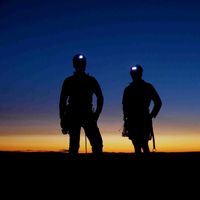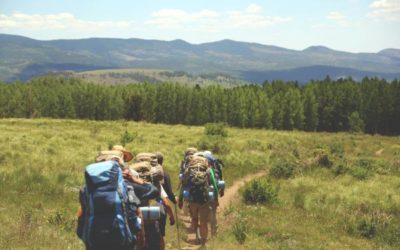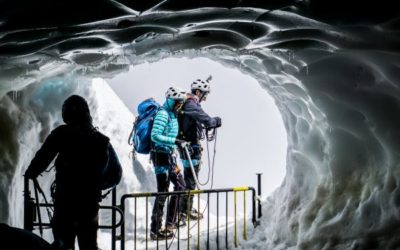Adaptation is one of those qualities of leadership, which makes leaders stand out. The ability to adapt is required when conditions change. For example, when conditions change in the market a previously sought after product can become obsolete overnight. Conditions can change in relationships, when conflict arises, or when decisions are required but the data or objectives are unclear to come to a unified agreement. Conditions can change in the weather, which forces us to adapt if we are in the outdoors. And conditions can change in your body, like when you get sick, over-tired, or when you start aging and your metabolism or eyesight changes which forces you to adapt your diet, exercise routine, etc. We know that conditions will change constantly. The question is do we have the courage and skill to successfully adapt?
CONDITIONS WERE ABOUT TO CHANGE FOR THE SUFFERING SERVANT
Jesus modeled adaptation in the Last Supper scene when it became apparent to him from the Father that his time on earth was coming to a close, and his mission would soon be coming to an end on the cross. John records this unforgettable scene in the upper room, as conditions for both Jesus and the Disciples were about to radically change:
Jesus, knowing that the Father had given all things into his hands, and that he had come from God and was going back to God, rose from supper. He laid aside his outer garments, and taking a towel, tied it around his waist. Then he poured water into a basin and began to wash the disciples’ feet and to wipe them with the towel that was wrapped around him. (John 13:3-5)
Soon Jesus would be betrayed, persecuted, and hung on a cross to die. And the Disciples would be given the greatest test they had ever known: to keep their faith in Christ in the chaos and confusion of the Passion week. Jesus adapted here by putting on the garmet of a slave and washing his Disciples feet. In this parabolic action, Jesus action became the parable. He was the Suffering Servant mentioned in Isaiah 53, and the Disciples had to see it to believe it.
RELATED POST: Servant in the Shadows | Acts of Service Create a Culture of Christ
True leaders adapt when the conditions change. Leaders rise up when adaptation is needed. They don’t whine about their limitations, lack of resources or support. They just adapt. For successful leaders, adaptation is automatic because they consistently adapted over the test of time.
YOU HAVE TO START SOMEWHERE
As I try to put myself in the shoes of young people today I am even more convinced that developing the capacity to adapt will become increasingly necessary as our culture faces a myriad of ominous cliffs ahead. Adaptability is a close cousin to courage. And it will be courage that gives our younger leaders the ability to hurdle the mounting pile of seeming impossible, yet very solvable problems, which our leader-less culture is putting off. There are too many to list.
PYRAMID PEAK | ADAPT OR GET HYPOTHERMIA
 I still vividly remember one summer evening when, as a young guide, my ability to adapt was tested. My wife, Becky (we had been married about a year at the time), and I awoke our group of eager high school students in the middle of the night to ascend Pyramid Peak in the Weminuche Wilderness of Colorado. We knew that if we started right away, we could reach the peak by sunrise (which is an unparalleled experience in the backcountry).
I still vividly remember one summer evening when, as a young guide, my ability to adapt was tested. My wife, Becky (we had been married about a year at the time), and I awoke our group of eager high school students in the middle of the night to ascend Pyramid Peak in the Weminuche Wilderness of Colorado. We knew that if we started right away, we could reach the peak by sunrise (which is an unparalleled experience in the backcountry).
We climbed for about four hours toward the peak. Hiking more efficiently than expected, we reached just below the summit way too early: it was still pitch black! The stars were bright and beautiful, but the wind was so cold that we could not stop for long before the sweat on our bodies would chill us—causing hypothermia. One is really exposed in this kind of situation. The group wanted to wait to see the sunrise, so I had to adjust to these new conditions.
RELATED POST: 3 WAYS OUTDOOR LEADERSHIP TEACHES ADAPTATION SKILLS | 1 SAMUEL 17
CLAMORING IN THE DARK FOR SHELTER FROM THE WIND
I decided to clamor down some rocks and we were able to tuck ourselves under the cleft of a huge boulder. We pulled out the emergency sleeping bag and boiled a pot of hot chocolate (which takes a while at 14,000’). Pressing together tightly kept us sheltered from the wind. Hot chocolate was passed around in a water bottle for each to hold for a few seconds, enjoy a sip, and then share with the next person. We managed to stay warm enough; singing, praying, and telling stories, until the sun finally came up. And wow was it worth it. Had we not been prepared with the right gear and the know-how to keep everyone safe and warm, we would have been in trouble. A huge part of being able to adapt to changing conditions is the whether or not you are prepared to perform when the going gets rough.
RELATED POST: “Casual” Can Lead to Catastrophe Outdoors | Outdoor Leadership Skills
Unfortunately we are seeing too many people finding their way into leadership positions because they can speak well or persuade an audience, but when push comes to shove, they have not been prepared to lead. I believe wilderness experiences are one of the best ways to help people learn adaptation. It is not a theory out there.
TAKE ACTION
- Think back over your experiences in the outdoors. Write down a few stories or situations where you were forced to adapt?
- Share your story below in the comment section or on my Facebook page. I’d love to hear from you!




